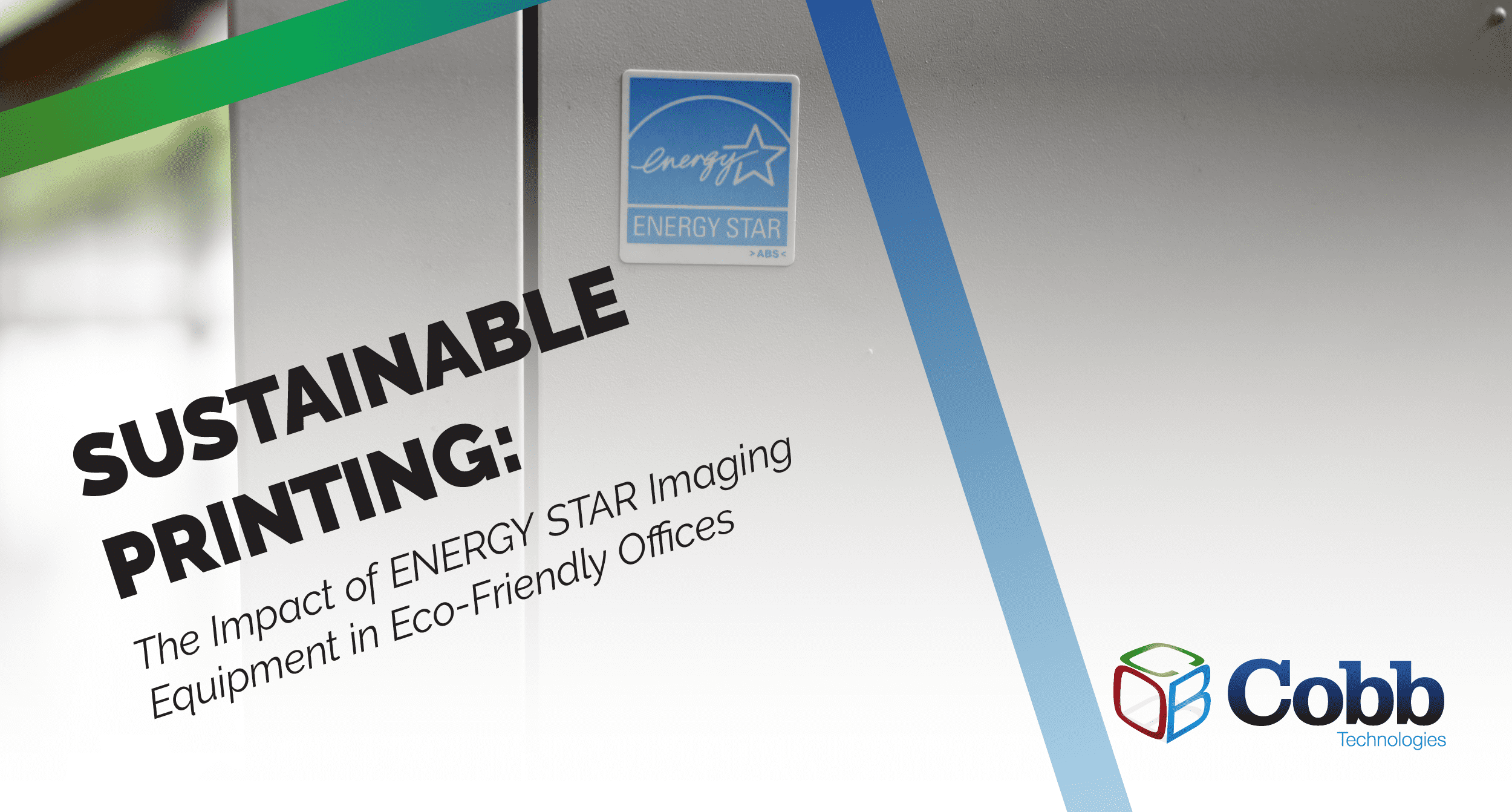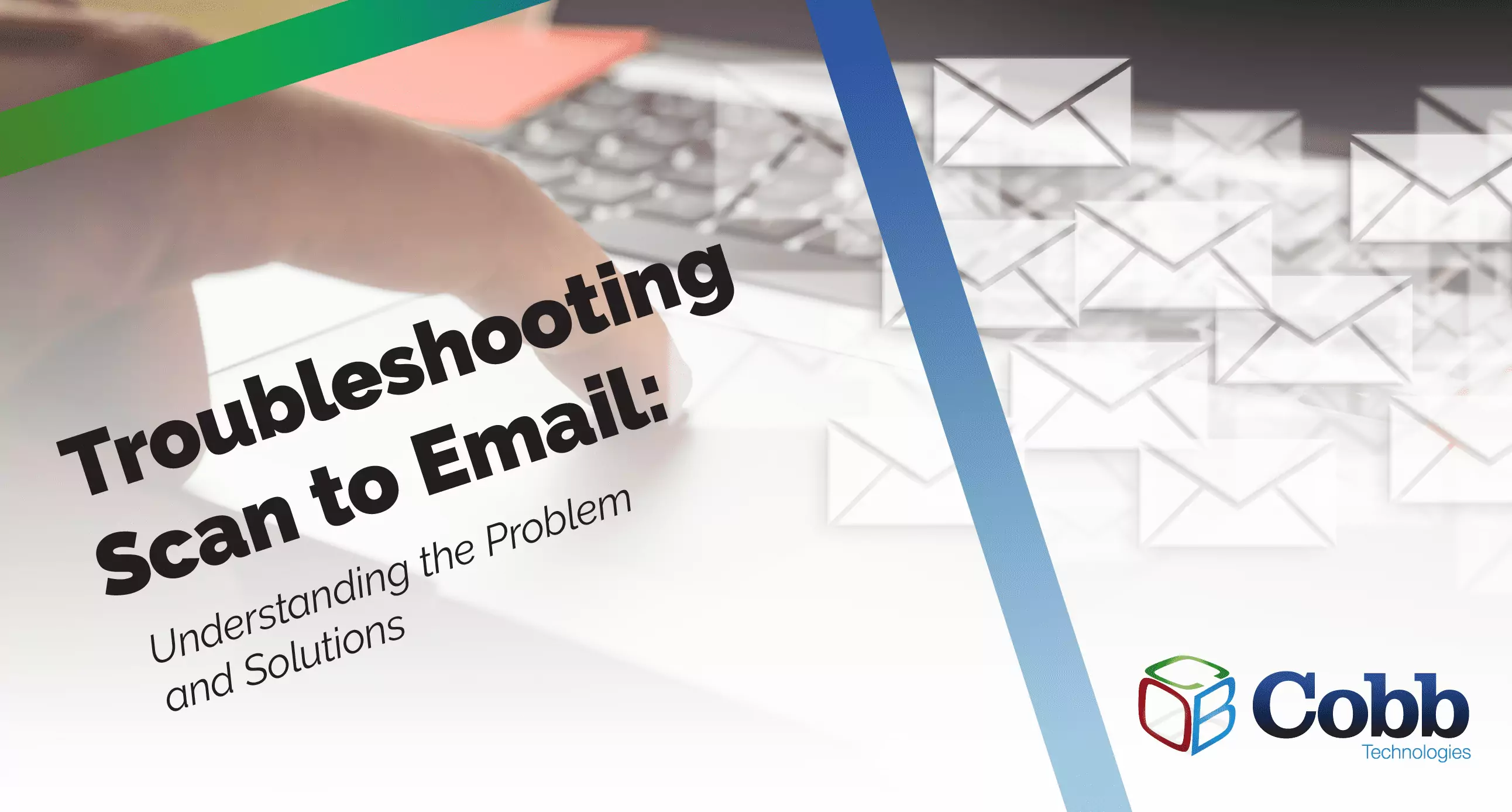9 min read
Sustainable Printing: The Impact of ENERGY STAR Imaging Equipment
Sustainability has become a top priority for businesses looking to minimize their environmental impact while maximizing efficiency. Yet, as...

Rising out of the Nile River Delta on the northern coast of Egypt, the Library of Alexandria would have been a breathtaking sight to the people of the third century BC. Less of a library and more of a cross between a university campus and an attraction on the Vegas Strip, this marble-clad complex boasted a zoo, dining and lecture halls, laboratories, temples, apartments, and, yes, a library. A symbol of Egyptian power above all else, the library grew through seizing collections of books and scrolls from ships entering the Port of Alexandria. These documents were copied by official scribes and the copies were then returned to the owners— the original documents would be sent to the library.
However, the immense accumulation of knowledge caused a problem not yet seen in the ancient world: and overabundance of information. In an effort to organize these volumes from all corners of the known world, the ancient librarians devised a system of “tagging” each scroll with the author, title, subject, and any other piece of information that might be helpful to researchers looking through the vast works. These little tags are one of the best and earliest examples of metadata.

Information about other data, data about data, data about information— these are all confusing ways to describe a deceptively simple concept. To better understand metadata, it's best to look at some common examples, such as information found in digital photographs (file name, author, date taken, camera information, location, etc.), books (copyright page, table of contents, index, etc.), or emails (subject, date sent, format, etc.). This is information separate from the overall piece of data— the actual photo, book, or email. Simply put, metadata helps us be more knowledgeable about the information around us, where it came from, and how to better organize it. You could probably provide examples of metadata from around your office or home, from how you file different documents at your desk to how you organize recipes in your kitchen.
So, the $100,000 question: Why is this all important? The simple answer is that metadata makes up individual pieces of our increasingly complex world. In our modern, global society, metadata is the building-block of internet commerce, GPS mapping, self-driving cars, advertising campaigns, and everything involving a large amount of information.
For starters, those google searches we make when trying to find a good restaurant or new doctor will populate accurate and relevant results because of the billions of pieces of metadata organizing and communicating with each other to help you find the best taco or gastroenterologist. And because of the sophistication of modern algorithms, your computer could point out those two searches might be related. The success of Amazon also sits on a bedrock of metadata— metadata about the products it sells as well as metadata about who it sells the products to. But business and web developers of all shapes and sizes utilize metadata for SEO and marketing purposes.
Since we are all part of the modern world, it’s a virtual certainty that you work with metadata to some extent. While it’s doubtful you’re expected to be an expert, it would be beneficial to have a good working knowledge of the concept.
With all of the lasting knowledge and culture we derive from the ancient world, it is no surprise that a simple fix to a persistent problem would follow us and evolve throughout the ages. The importance of metadata can be highlighted by some early wisdom from Aristotle: all of the pieces of metadata together help us explain and understand the connected world around us, demonstrating that the whole is indeed greater than the sum of its parts.
To learn more about the history of metadata, please have a look at the infographic below.


9 min read
Sustainability has become a top priority for businesses looking to minimize their environmental impact while maximizing efficiency. Yet, as...

6 min read
If you've recently encountered difficulties with your copier's scan-to-email feature, don’t worry — Your copier isn't malfunctioning; it's likely...

5 min read
Worried about cyberattacks hitting your business? You're not alone. Cyberattacks pose a real danger for businesses of all sizes, and without a solid...